Nose Surgery in Tunisia
Search and Compare the Best Clinics and Doctors at the Lowest Prices for Nose Surgery in Tunisia

Find the best clinics for Nose Surgery in Tunisia
With Medijump you can browse 8 facilities offering Nose Surgery procedures in Tunisia. The cheapest price available is $1,489 in Tunis. And for the cheapest price globally, prices start from in .
Nose Surgery in Tunis
Price: $ 1,489
Nose Surgery in Monastir
Price: $ 1,495
From 4 verified reviews
Samir Derradji, 18 March 2018
Hello I follow sick dalger Algeria I ask you a preforma for an opairation on the colon .Thank you
From 11 verified reviews
Craig Mills, 30 July 2019
Excellent private health care looked after my soon after he drowned in sahara beach hotel this month would definatly recommend being cared for there staff were amazing
From 37 verified reviews
Saoussen Saidani, 13 June 2020
My 12 year old daughter Lina has had surgery Pancreas tumorHeavy Operation which went very wellI thank all the staff of the Pasteur clinic for their hospitality and their hygiene ...I thank the doctors who attended the operation and in particular the surgeonAYADI Sofiene who accompanied us from the start for his professionalism as well as DR Walid Miraoui. The discovery of this tumor is done in a very short time a week to manage allThe support of Surgeon Ayadi Sofiene was really perfect as a parent we were reassured and above all in confidence.And especially I thank them for the moral support of My Daughter Lina who kept the smile until the end and who It is found in Total confidenceThank you so much for saving our childMr er Mrs Saidani
From 11 verified reviews
Toumi Mondher, 02 April 2019
The Department of Extraction and Billing at the Center of Imaging and Radiology, two patients, treated me with a reputation as a Tunisian clinic, and I bear the responsibility to speak this
From 9 verified reviews
Ibtyhel Ben bassine, 19 April 2019
I slept my little girl on Thursday, March 8, 2018, was at Top, my gygy, the nurses .... they put me in a calm and clean environment with a service of excellence .. thank you prts and especially pr Dr. hichem
Clinique Taoufik, located in Boulevard Mohamed Bouazizi, Tunis, Tunisia offers patients Nose Surgery procedures among its total of 225 available procedures, across 24 different specialties. Currently, there's no pricing information for Nose Surgery procedures at Clinique Taoufik, as all prices are available on request only, whilst the national average price is approximately $1,845. There are many specialists available at the Clinic, with 10 in total, and they are accredited by ISO 9001:2008
Cosmeticare Travel, located in Boulevard Mohamed Bouazizi, Tunis, Tunisia offers patients Nose Surgery procedures among its total of 34 available procedures, across 4 different specialties. Currently, there's no pricing information for Nose Surgery procedures at Cosmeticare Travel, as all prices are available on request only, whilst the national average price is approximately $1,845. There is currently a lack of information available on the specialists practicing at the Hospital, and they are not accredited by any recognized accreditations institutes
Clinic Apollon, located in Boulevard Mohamed Bouazizi, Tunis, Tunisia offers patients Nose Surgery procedures among its total of 90 available procedures, across 1 different specialties. Currently, there's no pricing information for Nose Surgery procedures at Clinic Apollon, as all prices are available on request only, whilst the national average price is approximately $1,845. All procedures and treatments are undertaken by just a small team of specialists, with 2 in total at the Clinic, and they are not accredited by any recognized accreditations institutes
- Home
- Tunisia
Compare Before & After Photos of _procedure_photos.phpNose Surgery
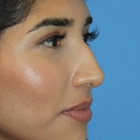
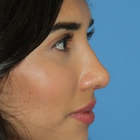
Full-side view
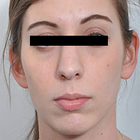
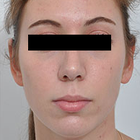
Front view
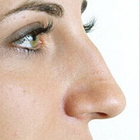
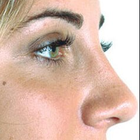
Full-side view
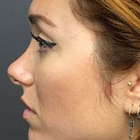
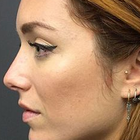
Full-side view
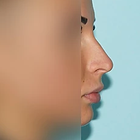
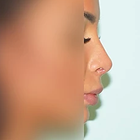
Full-side view
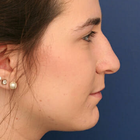
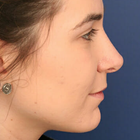
Full-side view
WHY US?
At Medijump, we're making medical easy. You can search, compare, discuss, and book your medical all in one place. We open the door to the best medical providers worldwide, saving you time and energy along the way, and it's all for FREE, no hidden fees, and no price markups guaranteed. So what are you waiting for?

Free

Best Price

Widest Selection

Risk-Free
What you need to know about Nose Surgery in Tunisia
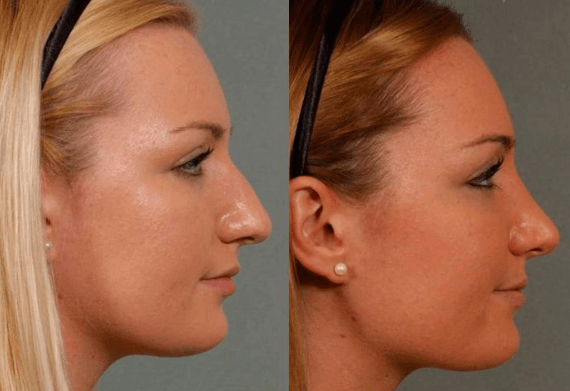
Commonly referred to as a Rhinoplasty, it is the medical term for reshaping of the nose or corrective surgery of the nose. It is one of the most common facial plastic surgeries (Facelift) procedures performed. Nose surgery can be performed to change the consequence of genetics, birth defect or nasal injury. It can be performed to enhance the appearance and/or to improve nasal breathing.
Surgery can be performed to correct nasal humps, the curvature of nose-bridge, nose tip irregularities, and asymmetry in the nostrils. The nasal appearance can be altered in various ways using intra-nasal chisels. Nose surgery procedures generally fall under three types: open rhinoplasty, closed rhinoplasty, and tip rhinoplasty. Rhinoplasty is normally performed under general anesthesia and will not leave any visible scars on the nose.
What does a Nose Surgery Procedure Involve?
Nose surgery is an individualized surgery. Before the surgery, you will need to discuss important factors with your surgeon to determine if it is suitable for you. Your surgeon will review your medical history, including your previous surgeries, medical conditions, and any medications you are taking. You will need to have a complete physical examination, such as blood tests. Your surgeon will also consider your other facial features, the skin on your nose, and what you would like to change or correct. Then, your surgeon will develop a customized plan for you. Two weeks before and after surgery, avoid any medications that contain aspirin or ibuprofen, such as Advil and Motrin IB because these medications can increase bleeding. You will need to also stop taking herbal remedies and over-the-counter supplements. If you are an active smoker, stop smoking because smoking can slow your healing process and increase the risk of getting an infection.
During the actual surgery, you will be given either local anesthesia or general anesthesia. The type of anesthesia depends on how complex the surgery is and what the surgeon would prefer to use. Then, the surgery will start by making incisions inside your nose or at the base of your nose between your nostrils. Your surgeon will reshape the inner bone and cartilage underneath your skin to make a more pleasing appearance.
There are several ways to change the shape of your nasal bones or cartilage, depending on your nose’s structure and how much needs to be removed or added. If only small changes are required, your surgeon may use cartilage taken from deeper inside your nose or your ear. However, for a much larger change, your surgeon may use cartilage from your rib, implants, or bone from other parts of your body. When the changes are finished, your surgeon will place the nose’s skin and tissue back. The incisions will be closed by stitches.
How Long Should I Stay in Tunisia for a Nose Surgery Procedure?
If everything goes well, you can go back to your hotel on the same day once the effects of anesthesia wear off. However, you will need to stay in a recovery room for a few hours so the staff can monitor you. Some people may need to stay in hospital overnight. After you are discharged from the hospital, you will need to stay in Tunisia for at least 10 to 14 days for initial recovery, follow-up checkups, and for the stitches to be removed.
What's the Recovery Time for Nose Surgery Procedures in Tunisia?
The recovery period for nose surgery can be different from person to person. In general, 2 to 3 weeks is needed until you can get back to your full normal routine and 3 to 6 weeks until you can do any strenuous activity. However, you should be able to go back to work within a week, except if your job requires strenuous physical activity. You will feel gradually better each day in the first week. You will experience swelling, which can take six months to subside. The only people who will notice the swelling is you and your surgeon. Your final nose shape will be apparent after it is completely healed.
What sort of Aftercare is Required for Nose Surgery Procedures in Tunisia?
After the surgery, you may need to wear a nasal splint for the first week. The splint is used to protect and support your nose. Your nose may be congested due to swelling or from the nasal splint. You need to rest in bed with your head raised higher than your chest to reduce bleeding and swelling. For a few days after the surgery, you may also experience slight bleeding and drainage of mucus. Your surgeon may place a “drip pad” under your nose to absorb drainage.
Your surgeon may ask you to avoid strenuous activity, take baths instead of showers, avoid blowing your nose, eat high-fiber foods to avoid constipation, not to do any facial expressions (smiling or laughing), not wearing pull clothing and wear button-downs instead.
For at least several weeks after the surgery, do not rest eyeglasses or sunglasses on your nose to prevent pressure. You should also wear SPF 30 sunscreen when you are outside because too much sun can cause permanent irregular discoloration to your nose. Do not put anything such as ice or cold packs on your nose even though it is swelling as the swelling will go away faster by limiting your dietary sodium.
What's the Success Rate of Nose Surgery Procedures in Tunisia?
Nose surgery is known to have around 80% to 90% success rate. Nevertheless, just like any other surgery, it still has possible risks and complications. These risks are bleeding, infection, numbness, permanent nerve damage, and an adverse reaction to the anesthesia. You should call your surgeon immediately if you suspect any of the symptoms. Other possible risks are difficulty breathing through your nose, uneven-looking nose, persisting pain, swelling, and discoloration, scarring, septal perforation, and the need for a second or third surgery.
For an in-depth analysis of the closed rhinoplasty procedure with before and after images, watch this short video.
Are there Alternatives to Nose Surgery Procedures in Tunisia?
If you do not want to undergo surgery, or if it is not suitable for you, you can get filler injections, such as Botox, Juvaderm, and Restylane. They can change the shape of your nose and only require a short visit to the doctor. This method is not painful and needs no incisions or stitches.
Whilst the information presented here has been accurately sourced and verified by a medical professional for its accuracy, it is still advised to consult with your doctor before pursuing a medical treatment at one of the listed medical providers
No Time?
Tell us what you're looking for and we'll reachout to the top clinics all at once
Enquire Now

Popular Procedures in Tunisia
Prices Start From $404

Prices Start From $111

Prices Start From $70

Prices Start From $220

Prices Start From $1,945

Prices Start From $192

Prices Start From $500

Recommended Medical Centers in Tunisia for Nose Surgery

- Interpreter services
- Translation service
- Religious facilities
- Medical records transfer
- Medical travel insurance
- Health insurance coordination
- TV in the room
- Safe in the room
- Phone in the room
- Private rooms for patients available

- Interpreter services
- Translation service
- Religious facilities
- Medical records transfer
- Medical travel insurance
- Health insurance coordination
- TV in the room
- Safe in the room
- Phone in the room
- Private rooms for patients available

- Interpreter services
- Translation service
- Religious facilities
- Medical records transfer
- Medical travel insurance
- Health insurance coordination
- TV in the room
- Safe in the room
- Phone in the room
- Private rooms for patients available

- Interpreter services
- Translation service
- Religious facilities
- Medical records transfer
- Medical travel insurance
- Health insurance coordination
- TV in the room
- Safe in the room
- Phone in the room
- Private rooms for patients available

- Interpreter services
- Translation service
- Religious facilities
- Medical records transfer
- Medical travel insurance
- Health insurance coordination
- TV in the room
- Safe in the room
- Phone in the room
- Private rooms for patients available

- Interpreter services
- Translation service
- Religious facilities
- Medical records transfer
- Medical travel insurance
- Health insurance coordination
- TV in the room
- Safe in the room
- Phone in the room
- Private rooms for patients available

- Interpreter services
- Translation service
- Religious facilities
- Medical records transfer
- Medical travel insurance
- Health insurance coordination
- TV in the room
- Safe in the room
- Phone in the room
- Private rooms for patients available

- Interpreter services
- Translation service
- Religious facilities
- Medical records transfer
- Medical travel insurance
- Health insurance coordination
- TV in the room
- Safe in the room
- Phone in the room
- Private rooms for patients available

- Interpreter services
- Translation service
- Religious facilities
- Medical records transfer
- Medical travel insurance
- Health insurance coordination
- TV in the room
- Safe in the room
- Phone in the room
- Private rooms for patients available

- Interpreter services
- Translation service
- Religious facilities
- Medical records transfer
- Medical travel insurance
- Health insurance coordination
- TV in the room
- Safe in the room
- Phone in the room
- Private rooms for patients available
Nose Surgery in and around Tunisia
About Tunisia
Tunisia is one of the few countries which can cater to everyone and it manages to combine climate, golden beaches, history, and shopping for an “all-around” experience. It has a high standard of healthcare and an excellent reputation for cosmetic surgery. Cosmetic and plastic surgeons are regulated by the Tunisian Ministry of Health and the private clinics have state-of-the-art equipment and English-speaking staff. Tunisia welcomes an ever-increasing number of medical tourists each year, many of whom travel for Nose Surgery procedures. Medical Tourists travel from all across the globe, particularly from Europe and neighboring African countries with an inferior healthcare system. Popular medical tourism destinations outside of the capital, Tunis, include Sousse and Mahdia
Popular Parts of Tunisia
- Tunis, the country’s capital, is overflowing with a history that dates from the 4th Century BC. The city is divided into two parts, the old city known as the medina and the new city (or Ville nouvelle in French). Many tourists visit Tunis to see the Archaeological Site of Carthage which is also a UNESCO World Heritage Site. The beautiful Islamic architecture in medina also attracts many tourists to the city.
- Tozeur is known as a home to an enchanting desert oasis, which was a place to rest and refuel for caravans crossing the Sahara. Another main attraction in the city is the medina, where tourists can find lines of beautiful brick-patterned traditional dessert houses. Chott el Djerid, Sahara’s largest salt pan, is a popular day-trip destination.
- Sousse is located on the coast of the Mediterranean Sea. It offers good beaches with a clear blue sea. The city has been fought over by the Romans, Arabs, and Europeans, giving it a colorful history and culture. Sousse Archeological Museum is one of the most visited sites in the country; it has the second largest collection of mosaics in the world.
- Hammamet is the country’s original tourism resort. The city has beautiful gardens filled with oranges, lemons, and other citrus plants. It also has wonderful sandy beaches with crystal clear water. Just like any other city in Tunisia, this city is also brimming with interesting histories. Sites such as The Gafsa Museum and Bardo Museum will give insights about the Islamic faith and culture.
- Douz, also known as “the gateway to the Sahara.” Tourists who want to experience the Sahara Desert come to this city. Take a camel trip or a 4-wheel-drive into the Sahara or see the Museum of the Sahara that has an interesting collection portraying traditional Saharan life.
Weather and Climate in Tunisia
The North of Tunisia has a subtropical Mediterranean climate with mild rainy winters and hot summers. The South and inland areas have a tropical desert climate.
The weather is relatively comfortable throughout the year. Summer starts in June and lasts until August. The average temperature is between 28 °C to 32 °C with July and August being the hottest months. The heat is not as bad on the coast because of the seaside breeze. Be aware that July to September is the jellyfish season.
The heat decreases in autumn and the weather is somewhat more comfortable. There are occasional rain showers in September. The temperature in October can be like summer during day time, but cold at night. October has more rain than September. The season lasts for three months from September to November with an average temperature of around 19 °C to 29 °C.
The weather in winter can be uncertain. The average temperature is between 16 °C and 18 °C, but it can drop to 7 °C at night and below 0 °C in highlands and deserts and a clear sky is rare during this season.
Spring comes in March and the temperature can rise to 20 °C. Mornings and nights are cold; there is still a high probability of rains and thunderstorms at the end of this season.
Getting Around in Tunisia
Tunisia has several international airports. The main airport is Tunic-Carthage International Airport. It has international connections with major European countries and the Middle East. The airport is the hub for Tunisair, Tunisair Express, and Nouvelair. Other airports that have international flights are Enfidha-Hammamet, Monastir Habib Bourguiba, Djerba-Zarzis, and Tabarka-Aïn Draham.
Taxis and buses are available to get to the city center from Tunis Airport. The SNT bus line departs every 30 minutes from the airport, the ticket costs less than 1 TND. There is also the TUT bus which departs every 15 minutes and is more luxurious and expensive.
Airport taxis are available at the airport taxi stand and are usually metered. Always make sure that the driver turns the meter on before riding the taxis. A journey to the city should cost around 5 TND. An extra cost will be added if you have baggage.
Getting around in Tunisia can be done by several transportation modes. Tunisair Express provides domestic flights between Tunis, Tozeur, Djerba, and Gabes. The Train is also available and the national train company in the country is SNCFT that runs modern and comfortable trains from Tunis to Sousse, Sfax, and Monastir. There are three classes of service that tourists can choose. The fare from Tunis to Sousse is between 6 to 10 TND. The long-distance bus is an economical option to travel between big cities such as Tunis, Hammamet, and Nabeul. The buses usually depart every 30 minutes.
Tourist Visas in Tunisia
Citizens of 97 countries (including Australia, China Singapore, the United States, and Russia) can visit and stay in Tunisia for up to 90 days without a visa. Other nationalities are advised to check with their local Tunisia embassy. Tunisia provides an online visa application for nationalities that needs a visa to enter. The eVisa will simplify the process of obtaining travel authorization to enter the country.
Additional Information
-
Local Currency: the local currency is the Tunisian dinar (TND). 1 USD converts to 2.61 TND.
-
Money & Payments: ATMs can be found in most cities and in all tourist areas. Many ATMs have withdrawal limits of 400 TND. Credit cards (MasterCard and Visa) are accepted in major cities and tourist areas. They can be used for shops, car hire, or top-end accommodation. Always make sure to carry cash if you want to travel outside major cities. Tipping is not necessary but will be appreciated.
-
Local Language: Arabic is the official language of Tunisia. French is very common due to the country’s former status as a French protectorate. English is still very limited except in the tourist areas and expensive hotels.
-
Local Culture and Religion: Islam is the major religion with 98% of the population identified as Muslim. There is a small group of Christian and Jews. Since most of the population is Muslim, always remember that the dress code is important in Tunisia.
-
Public Holidays: Tunisia celebrates major Islam holidays. The country hosts several annual festivals throughout the year such as The International Festival of the Sahara, Yasmine Hammamet Festival, and the International Festival of Carthage.
Popular Searches
- Plastic Surgery in Thailand
- Dental Implants in Thailand
- Hair Transplant in Thailand
- Breast Augmentation Thailand
- Gastric Sleeve in Thailand
- Gender Reassignment Surgery in Thailand
- Laser Hair Removal in Bangkok
- Botox in Bangkok
- Dermatology in Bangkok
- Breast Augmentation in Bangkok
- Coolsculpting in Bangkok
- Veneers in Turkey
- Hair Transplant in Turkey
- Rhinoplasty in Turkey
- Stem Cell Therapy in Mexico
- Rhinoplasty in Mexico
- Liposuction in Mexico
- Coolsculpting in Tijuana
- Rhinoplasty in Korea
- Scar Removal in Korea
- Gastric Sleeve in Turkey
- Bone Marrow Transplant in India
- Invisalign in Malaysia
- Plastic Surgery in the Dominican Republic
- Tummy Tuck in the Dominican Republic
- Plastic and Cosmetic Surgery in Poland
- Rhinoplasty in Poland
- Hair Implant in Poland
- Dental Implants in Poland
- IVF in Turkey







